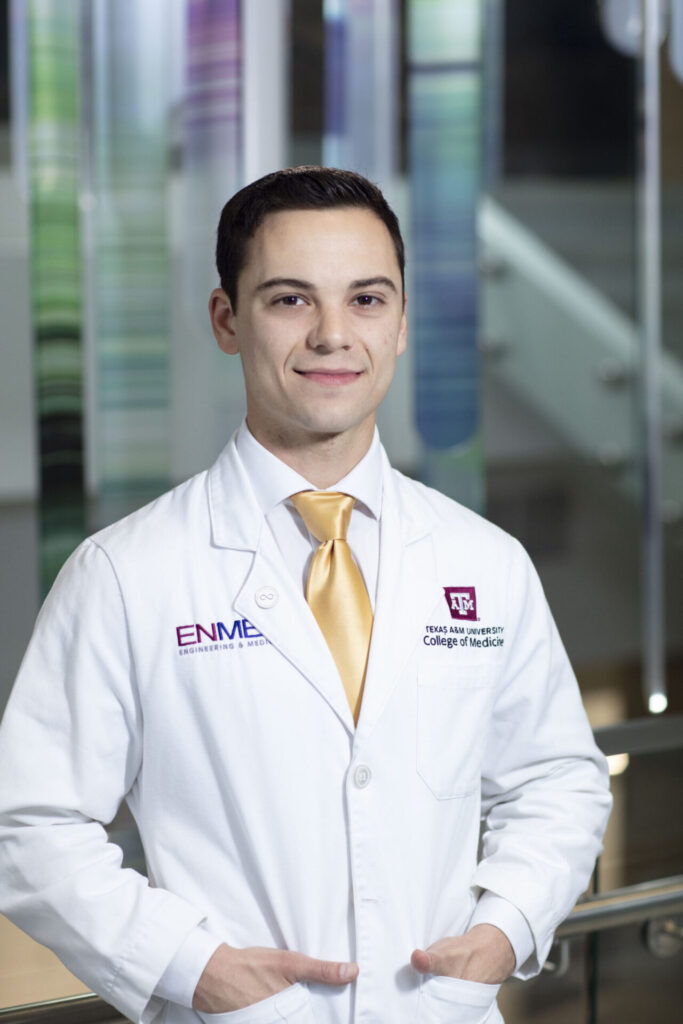For physicianeer Kenneth Sims IV and some other EnMed students, COVID-19 spawned a highly useful challenge: How could they take some of the guess work out of the process of finding a properly fitting N95 mask.
Sims and the team developed a mobile phone app in response to many people having to use trial-and-error to find the right sized mask. Using their computer and programming skills, the team created an algorithm in the web application to analyze facial photographs and validated the process with photos from volunteers. All the data were analyzed using the Google Cloud Vision API. The app used facial landmarks along with voluntarily collected demographic factors of volunteers.

In most cases, the app appeared to accurately predict the size. The goal was to help health care systems waste less personal protective equipment (PPE) while retaining high-quality standards in fitting people effectively. “It really allowed us to put our coding skills to work within the bio-design process,” Sims said. “Our team – Mu’ath Adlouni, Darshil Choksi, Brendan D’Souza, and Zach Richards – worked really well together. We were able to present our findings at a conference in Minneapolis, Minnesota, 2022 Design of Medical Devices Conference.” They cited how systems using the app might be able to optimize their supply chains by being able to rapidly assess and order the number of masks needed. What is equally fascinating, users of the mask need not be present to be accurately measured. Sims, a Lafayette, Louisiana, native, earned his undergraduate degree in mechanical engineering from U.S. Military Academy at West Point. As an active-duty lieutenant, he has attended medical school at EnMed and is matched to do his residency in otolaryngology – head and neck surgery – in Honolulu, Hawaii, at the Tripler Army Medical Center. In the long run, one of the soldier/physicianeer’s career goals is to devise better protective equipment for soldiers using principles of biomechanics and materials science he has learned at West Point and refined at EnMed. “My experiences have been wonderful here in Houston,” he said. “EnMed is a great place for a medical student to be around similarly motivated peers and wonderful faculty and physicians. I am looking forward to putting what I have learned to work for soldiers and their families in Hawaii.” Sims has also completed other projects, including one now underway on surgical drain stabilization dressings that reduce pain, irritation, and drain displacement. He earlier completed student research internships at the Hospital for Special Surgery in New York and at Harvard University’s John A. Paulson School of Engineering and Applied Sciences in Cambridge, Massachusetts.